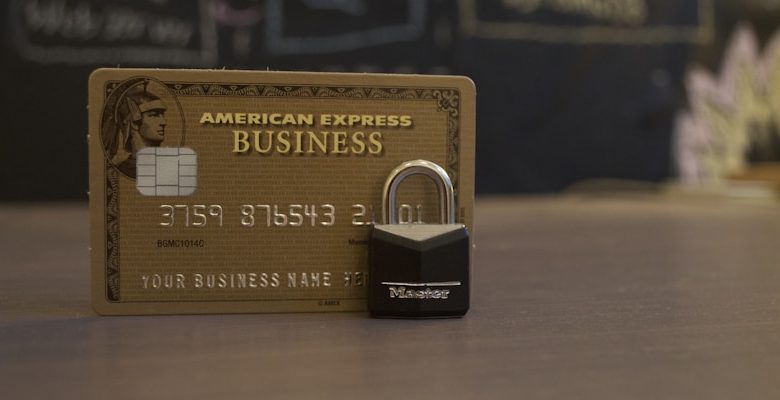The Importance of Security in Crypto Wallets

- The Rise of Crypto Wallets in the Digital Age
- Understanding the Vulnerabilities of Cryptocurrency
- How to Safeguard Your Digital Assets with Secure Wallets
- The Evolution of Security Features in Crypto Wallets
- Best Practices for Securing Your Crypto Wallet
- The Future of Cryptocurrency Protection: Innovations in Wallet Security
The Rise of Crypto Wallets in the Digital Age
In recent years, crypto wallets have become increasingly popular as more people embrace the digital age. These wallets provide a secure way to store and manage cryptocurrencies, allowing users to easily access their funds whenever they need to. With the rise of cryptocurrencies like Bitcoin and Ethereum, the importance of security in crypto wallets cannot be understated.
One of the key benefits of using a crypto wallet is the ability to securely store your digital assets. By using encryption and other security measures, these wallets protect your funds from hackers and other malicious actors. This added layer of security gives users peace of mind knowing that their cryptocurrencies are safe and secure.
Another advantage of using a crypto wallet is the convenience it offers. With a crypto wallet, you can easily send and receive cryptocurrencies with just a few clicks. This ease of use makes it simple for anyone to participate in the digital economy, whether they are buying goods and services online or investing in new projects.
As the popularity of cryptocurrencies continues to grow, so too does the importance of security in crypto wallets. By choosing a reputable wallet provider and following best practices for security, users can protect their funds from theft and unauthorized access. With the right precautions in place, crypto wallets can offer a safe and secure way to store and manage your digital assets in the digital age.
Understanding the Vulnerabilities of Cryptocurrency
Cryptocurrencies have gained popularity in recent years, but with this rise in popularity comes an increase in security vulnerabilities. It is essential to understand these vulnerabilities to protect your investments effectively. One vulnerability is the risk of phishing attacks, where hackers use fake websites or emails to trick users into revealing their private keys or passwords. Another vulnerability is the potential for malware to infect your device and steal your cryptocurrency. Additionally, there is the risk of exchange hacks, where cybercriminals target cryptocurrency exchanges to steal funds. These vulnerabilities highlight the importance of using secure crypto wallets to safeguard your assets. By being aware of these risks, you can take proactive steps to protect your investments and minimize the chances of falling victim to a security breach.
How to Safeguard Your Digital Assets with Secure Wallets
If you want to safeguard your digital assets effectively, using secure wallets is crucial. Secure wallets provide an extra layer of protection for your cryptocurrency holdings, making it more difficult for hackers to gain access to your funds.
When choosing a secure wallet, look for features such as multi-signature authentication, encryption, and two-factor authentication. These features help ensure that only you can access your funds, even if your wallet is compromised.
It’s also essential to keep your wallet up to date with the latest security patches and updates. Hackers are constantly finding new ways to exploit vulnerabilities in wallets, so staying on top of updates is key to keeping your funds safe.
Remember to back up your wallet regularly and store your backup in a secure location. In the event that your wallet is lost or stolen, having a backup will allow you to recover your funds and prevent any loss.
By following these best practices and using a secure wallet, you can protect your digital assets and have peace of mind knowing that your funds are safe and secure.
The Evolution of Security Features in Crypto Wallets
Over the years, crypto wallets have evolved significantly in terms of security features to protect the digital assets of users. One of the earliest security measures introduced in crypto wallets was the use of private keys. These keys are like passwords that grant access to the wallet and must be kept secure to prevent unauthorized access. As technology advanced, additional security features such as two-factor authentication and biometric authentication were implemented to provide an extra layer of protection.
In recent years, hardware wallets have gained popularity for their enhanced security. These wallets store private keys offline, making them less vulnerable to hacking attempts. Hardware wallets also require physical confirmation for transactions, adding another level of security. Moreover, the use of multi-signature technology has become more prevalent in crypto wallets. This technology requires multiple private keys to authorize a transaction, reducing the risk of a single point of failure.
Another significant development in the security features of crypto wallets is the implementation of encryption techniques. End-to-end encryption ensures that data is only accessible to the sender and receiver, protecting it from interception by malicious parties. Some wallets also offer the option of creating hidden wallets within the main wallet, adding an extra layer of security for sensitive transactions.
Overall, the evolution of security features in crypto wallets has been driven by the need to safeguard digital assets from increasingly sophisticated cyber threats. By incorporating a combination of encryption, multi-factor authentication, and offline storage, modern crypto wallets offer users a more secure way to store and manage their cryptocurrencies. As the crypto industry continues to grow, it is crucial for wallet developers to stay ahead of cyber threats and prioritize the security of their users’ funds.
Best Practices for Securing Your Crypto Wallet
When it comes to securing your crypto wallet, there are several best practices that you should follow to ensure the safety of your digital assets. Here are some key tips to help you protect your cryptocurrency:
- Use a hardware wallet: Consider using a hardware wallet to store your cryptocurrency offline, away from potential online threats.
- Enable two-factor authentication: Adding an extra layer of security to your wallet with two-factor authentication can help prevent unauthorized access.
- Keep your private keys secure: Your private keys are the key to accessing your cryptocurrency, so make sure to store them in a safe place and never share them with anyone.
- Update your wallet software regularly: Stay up to date with the latest security patches and updates for your wallet to protect against known vulnerabilities.
- Avoid public Wi-Fi networks: When accessing your wallet, avoid using public Wi-Fi networks, as they can be insecure and make you vulnerable to hacking.
By following these best practices, you can help safeguard your crypto wallet and minimize the risk of theft or loss of your digital assets. Remember that security should always be a top priority when dealing with cryptocurrency, as the decentralized nature of this technology means that there is no central authority to turn to in case of fraud or theft.
The Future of Cryptocurrency Protection: Innovations in Wallet Security
Innovations in cryptocurrency wallet security are crucial for protecting digital assets from cyber threats. As the popularity of cryptocurrencies continues to rise, so does the need for more advanced security measures to safeguard funds.
One of the most promising developments in wallet security is the use of biometric authentication, such as fingerprint or facial recognition. This technology adds an extra layer of protection by ensuring that only the rightful owner of the wallet can access its contents. Additionally, multi-signature transactions require approval from multiple parties before funds can be moved, adding another level of security.
Hardware wallets are another innovative solution for securing cryptocurrencies. These physical devices store private keys offline, making them less vulnerable to hacking attempts. By keeping sensitive information off the internet, hardware wallets provide a secure way to store digital assets.
Furthermore, advancements in encryption technology have made it increasingly difficult for hackers to gain unauthorized access to cryptocurrency wallets. End-to-end encryption ensures that data is only visible to the sender and recipient, protecting sensitive information from prying eyes.
Overall, the future of cryptocurrency protection lies in continuous innovation and adaptation to emerging threats. By staying ahead of cybercriminals and implementing cutting-edge security measures, users can have peace of mind knowing that their digital assets are safe and secure.



